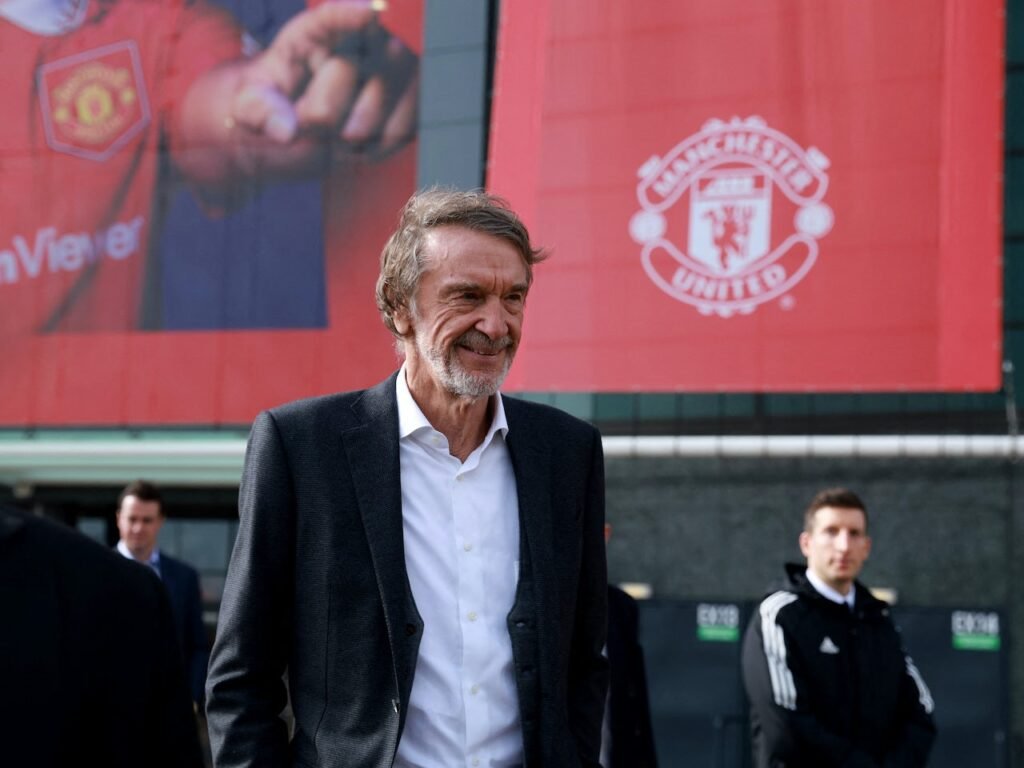Introduction: A Paradigm Shift in Manchester United’s Ownership
In a surprising turn of events, British billionaire Jim Ratcliffe is set to acquire 25% of Manchester United, signaling a seismic shift in the club’s ownership dynamics. Ratcliffe, known for his success in the business world, is poised to take control of football operations, a move that some interpret as an admission of failure by the Glazer family, the current owners. This development, however, raises a myriad of questions about the future direction of Manchester United and the motivations behind this significant ownership shift.
Admission of Failure or Strategic Move?
The decision by the Glazer family to cede control of football operations to Ratcliffe is viewed by some as an acknowledgment of their inability to steer the club successfully since the departure of Sir Alex Ferguson. Despite substantial investments and managerial changes, Manchester United has struggled to reclaim its former glory on the pitch. The hope seems to be that Ratcliffe’s involvement will bring a fresh perspective and innovative strategies to rejuvenate the club.
However, skeptics argue that the Glazers might be strategically distancing themselves from football operations to shield themselves from blame if the team’s performance falters. The move to grant Ratcliffe control could be a calculated effort to have someone else take the fall if results on the pitch do not improve as expected.

The Complex Deal: Unpacking the Ownership Structure
Ratcliffe’s acquisition involves purchasing 25% of the Class B shares owned by the Glazer family. These Class B shares, while constituting only 69% of Manchester United, come with super voting rights, effectively giving the Glazers a 97% ownership stake in the club. Ratcliffe is also extending an offer to buy 25% of the Class A shares, listed on the New York Stock Exchange, at a favorable price of $33 per share, subject to regulatory approval. The complexity of the deal raises questions about how much influence Ratcliffe can truly exert with only a 25% ownership stake.
A Closer Look at Jim Ratcliffe: Business Success and Sporting Ventures
Jim Ratcliffe, with a net worth estimated between $10 and $20 billion, boasts an impressive track record in business. From college beginnings to building one of the world’s largest petrochemical companies, Ratcliffe’s business acumen is commendable. However, concerns arise when scrutinizing his environmental impact, with critics pointing to harm caused by his companies to the environment.
Ratcliffe’s venture into the world of sports has been mixed. While achieving success in business, his sporting endeavors have yielded varied results. , now rebranded as Ineos Grenadiers, has seen mixed performance in cycling. In football, owning clubs like Lausanne and Nice has not produced consistent success, leaving questions about his ability to navigate the intricacies of the sport.
Restructuring Manchester United: Promises and Pitfalls
Ratcliffe’s promises to bring global knowledge, expertise, and talent from the wider Ineos sport group to enhance Manchester United’s sporting aspects raise hopes among fans. The restructuring includes the appointment of a new chief executive, a football recruitment director, and potentially a new sporting director. Names like Jean-Claude Blan, Paul Mitchell, Dan Ashworth, and Dave Brailsford are floating around as potential figures in this restructuring.
However, the efficacy of such restructuring is met with skepticism. The world of elite football has evolved significantly, with clubs like Manchester City, Liverpool, and Tottenham setting new standards in performance, infrastructure, and coaching. Ratcliffe’s vision of improving every aspect by a couple of percent is met with doubt, especially considering the substantial investments required to compete at the highest level.
Financial Implications and Lingering Questions
While the deal with Ratcliffe injects much-needed funds, questions persist about the destination of these finances. Concerns arise about whether the money will be directed toward paying off the staggering debt accumulated during the Glazer family’s ownership. Manchester United’s debt, now totaling a billion pounds, has impeded the club’s financial flexibility for nearly two decades.
The lack of transparency regarding the future of the debt raises eyebrows, and fans are left wondering if Ratcliffe’s investment will genuinely address the underlying financial challenges or if it will serve other undisclosed purposes.
The Path Forward: Unanswered Queries and Future Expectations
As news of Jim Ratcliffe’s acquisition reverberates through the football world, numerous questions remain unanswered. The intricate details of the deal, the true extent of Ratcliffe’s influence, and the long-term financial implications are subjects that demand clarity. A future news conference featuring Ratcliffe and the Glazers could provide the platform for addressing these queries, but as of now, it seems the footballing community will have to wait for such revelations.
Conclusion: A Christmas Gift or a Cause for Concern?
On the eve of Christmas, Manchester United fans find themselves in a unique position. The acquisition by Jim Ratcliffe introduces an element of hope and anticipation for positive change. However, with the complexity of the deal, the uncertain impact of restructuring, and lingering questions about financial priorities, the euphoria is tempered with a sense of caution. As the football world eagerly awaits further developments, the true impact of Ratcliffe’s ownership on Manchester United’s trajectory remains to be seen. Whether this turns out to be a game-changing move or a risky gamble will unfold in the seasons to come.
